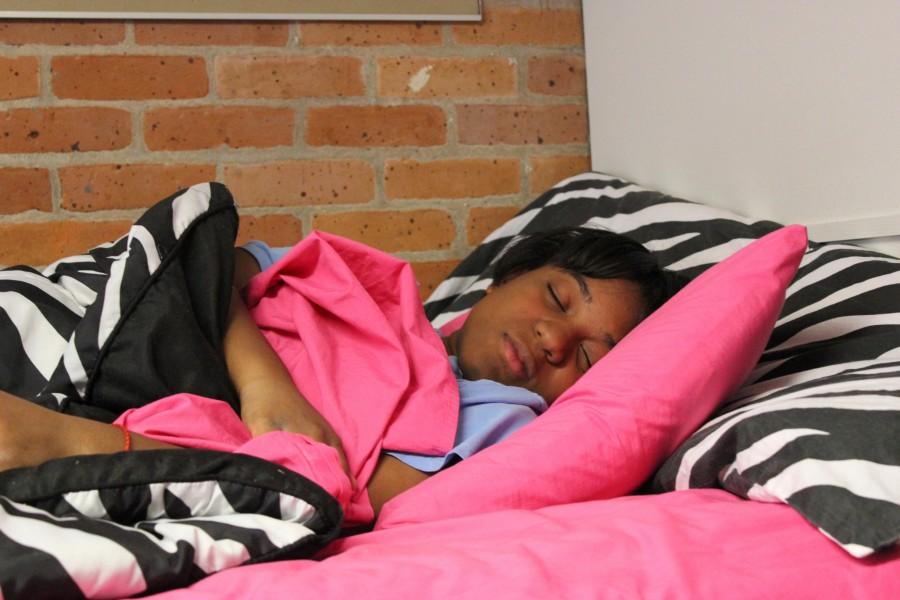In an effort to get everything done, some students might try to pack more than 24 hours into a day, often skipping sleep or not getting much. While it’s obvious that we need sleep to function, what many don’t realize is that we also need it to perform well. Bourque said skipping sleep has several consequences, both short-term and long-term.
According to Bourque, the amount of sleep we get directly translates into how much we can learn and keep in our memory. Although we might not notice, pulling an all-nighter is the equivalent of being intoxicated, which is not the best condition to perform well on an exam.
“If a student is awake for a 24-hour period, it’s the same as having a blood alcohol content that’s illegal for driving,” Bourque said. “Your judgment, concentration, attention and mood are decreased.” Other consequences include confusion, irritability, short-term memory reduction, anxiety and inability to focus.
According to Bourque, the recommended amount of sleep is seven to eight hours per night; however, this varies depending on the individual. “Your siblings and friends might need less. It’s a genetic component and it also varies with age. As we age, the amount tends to decrease.”
To get a good night’s sleep, Bourque said students should avoid taking many naps during the day and worrying or exercising too close to bed time, as all of these disrupt a person’s natural sleep cycle. Nicotine and caffeine should also be avoided after 2 p.m., depending on one’s tolerance. Alcohol should also be avoided or consumed in small quantities because it encourages insomnia, the inability to fall asleep. Bourque said drinking alcoholic beverages actually decreases the ability of going into Rapid Eye Movement, known to many as REM, sleep, which is the restorative type of rest. “When you drink heavily multiple nights, you’ll feel exhausted because you’re not getting good sleep,” she said.
Bourque suggested students go to bed and wake up at the same time everyday to encourage a natural sleeping pattern. To do this, she recommended students relax 30 to 60 minutes before bedtime. This can be done with a warm shower or light stretching. Sources of light such as a visible clock or cellphone should be turned away or off, given that light can discourage sleep. Because worrying too much can also disturb sleep, Bourque suggests students set aside 20 minutes during the day for thinking about concerns, so as to not worry about them come bedtime.








